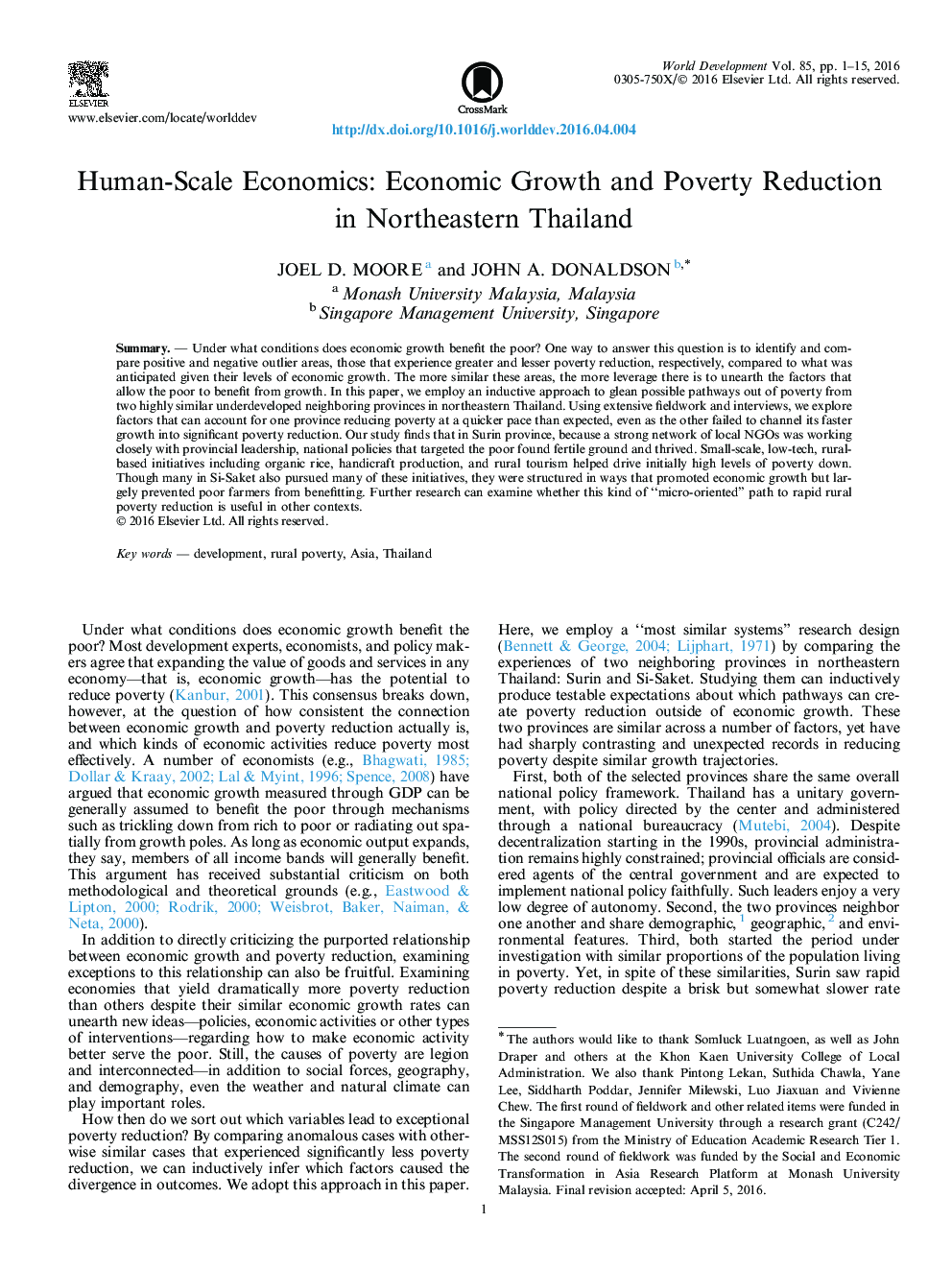| کد مقاله | کد نشریه | سال انتشار | مقاله انگلیسی | نسخه تمام متن |
|---|---|---|---|---|
| 990555 | 1481133 | 2016 | 15 صفحه PDF | دانلود رایگان |
• Examines causes of divergent poverty outcomes in two similar rural Thai provinces.
• Adopts an inductive, comparative method to understand why this outcome emerged.
• Provides evidence that Surin promoted small-scale, low-tech sectors in which poor farmers can participate.
• Documents a network of civil society groups and a proactive governor, and provides evidence that these drove these efforts.
• Identifies a pathway to poverty reduction that can be explored in other contexts.
SummaryUnder what conditions does economic growth benefit the poor? One way to answer this question is to identify and compare positive and negative outlier areas, those that experience greater and lesser poverty reduction, respectively, compared to what was anticipated given their levels of economic growth. The more similar these areas, the more leverage there is to unearth the factors that allow the poor to benefit from growth. In this paper, we employ an inductive approach to glean possible pathways out of poverty from two highly similar underdeveloped neighboring provinces in northeastern Thailand. Using extensive fieldwork and interviews, we explore factors that can account for one province reducing poverty at a quicker pace than expected, even as the other failed to channel its faster growth into significant poverty reduction. Our study finds that in Surin province, because a strong network of local NGOs was working closely with provincial leadership, national policies that targeted the poor found fertile ground and thrived. Small-scale, low-tech, rural-based initiatives including organic rice, handicraft production, and rural tourism helped drive initially high levels of poverty down. Though many in Si-Saket also pursued many of these initiatives, they were structured in ways that promoted economic growth but largely prevented poor farmers from benefitting. Further research can examine whether this kind of “micro-oriented” path to rapid rural poverty reduction is useful in other contexts.
Journal: World Development - Volume 85, September 2016, Pages 1–15
